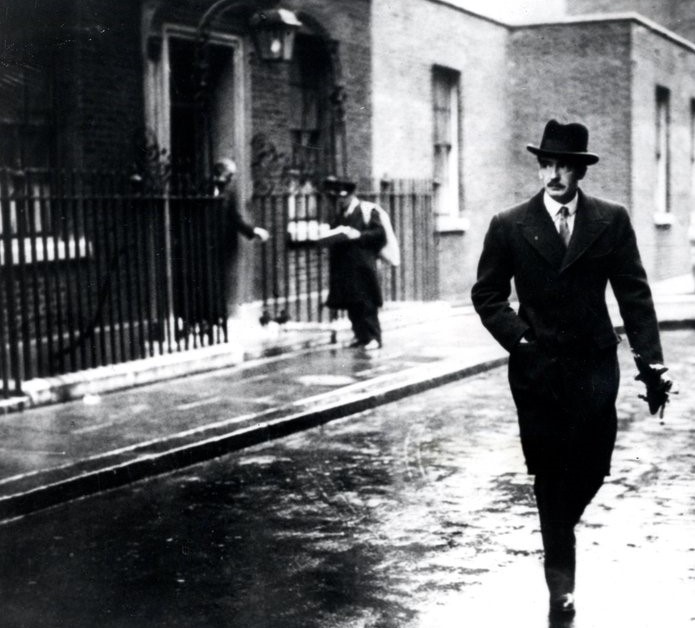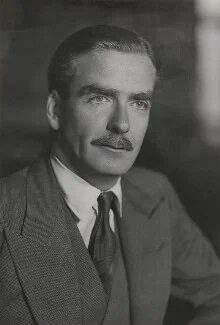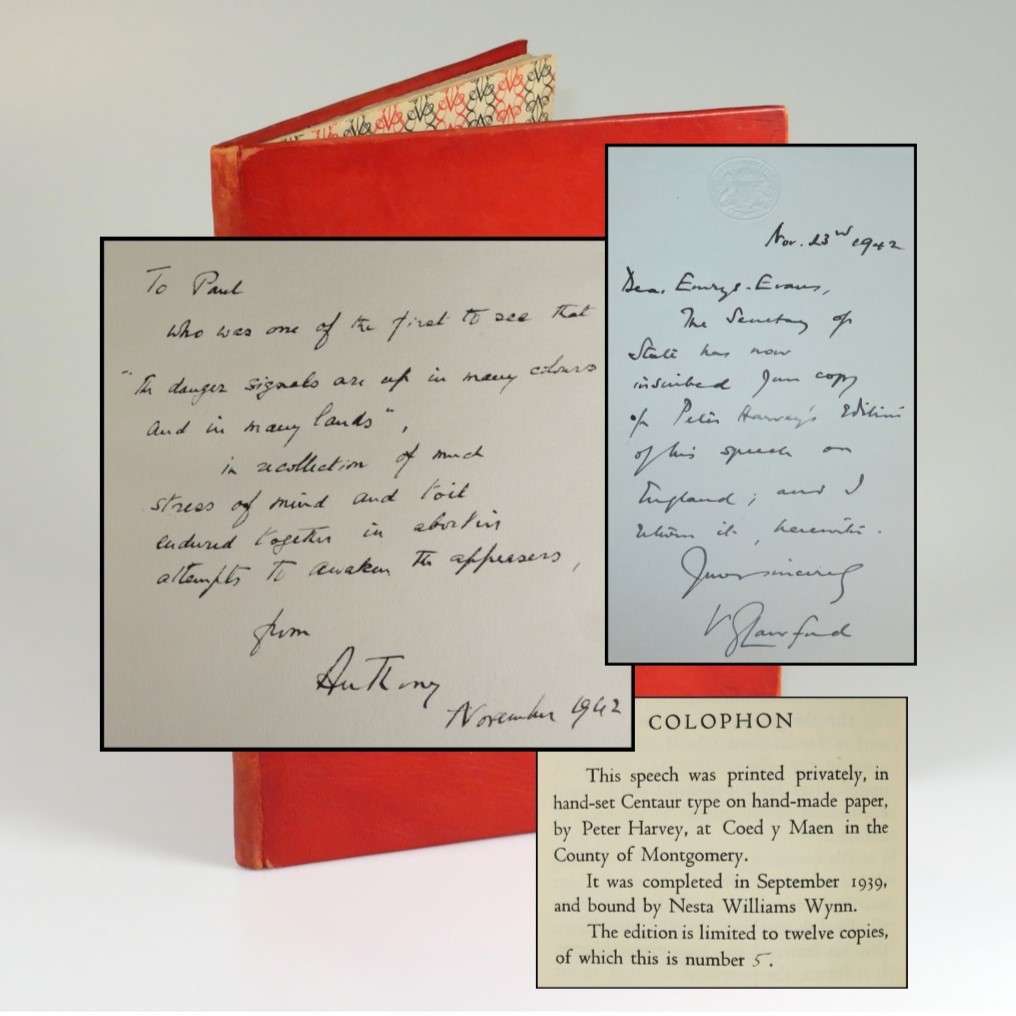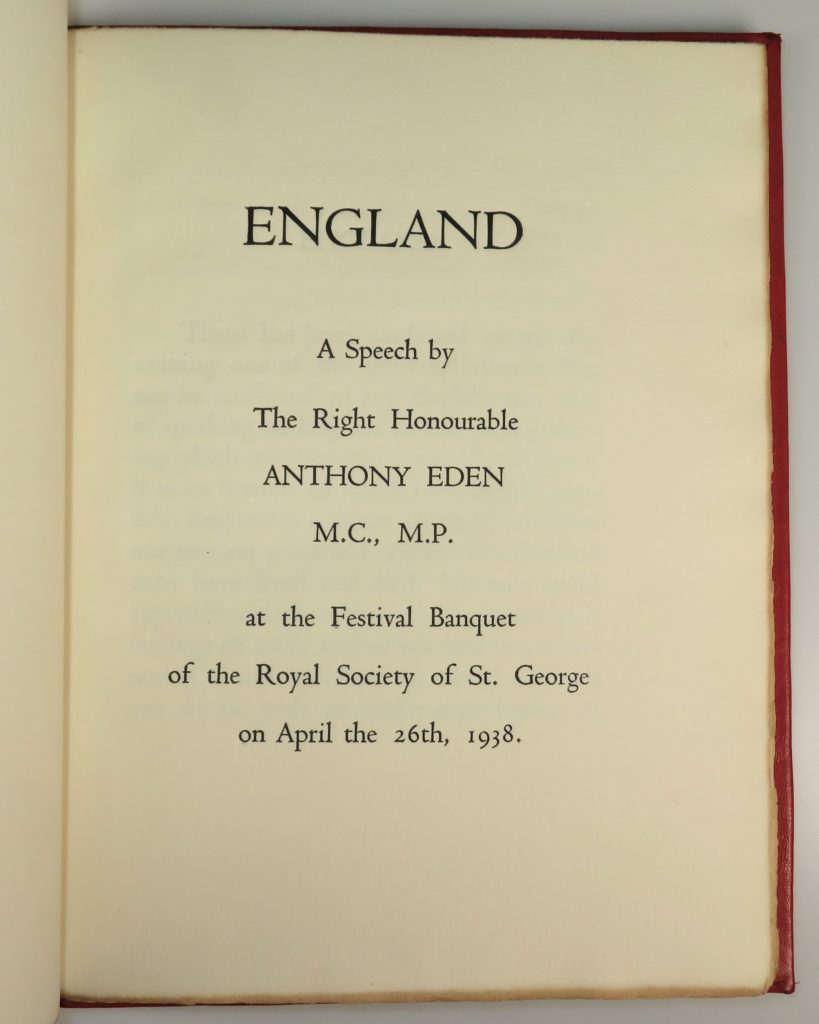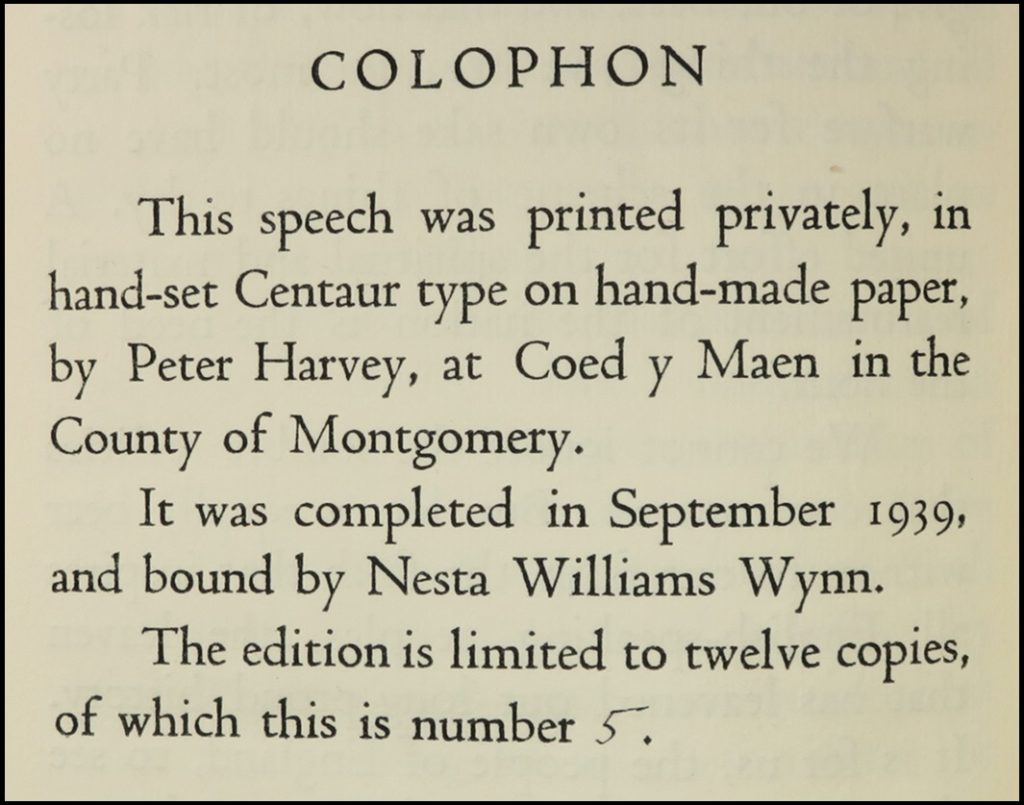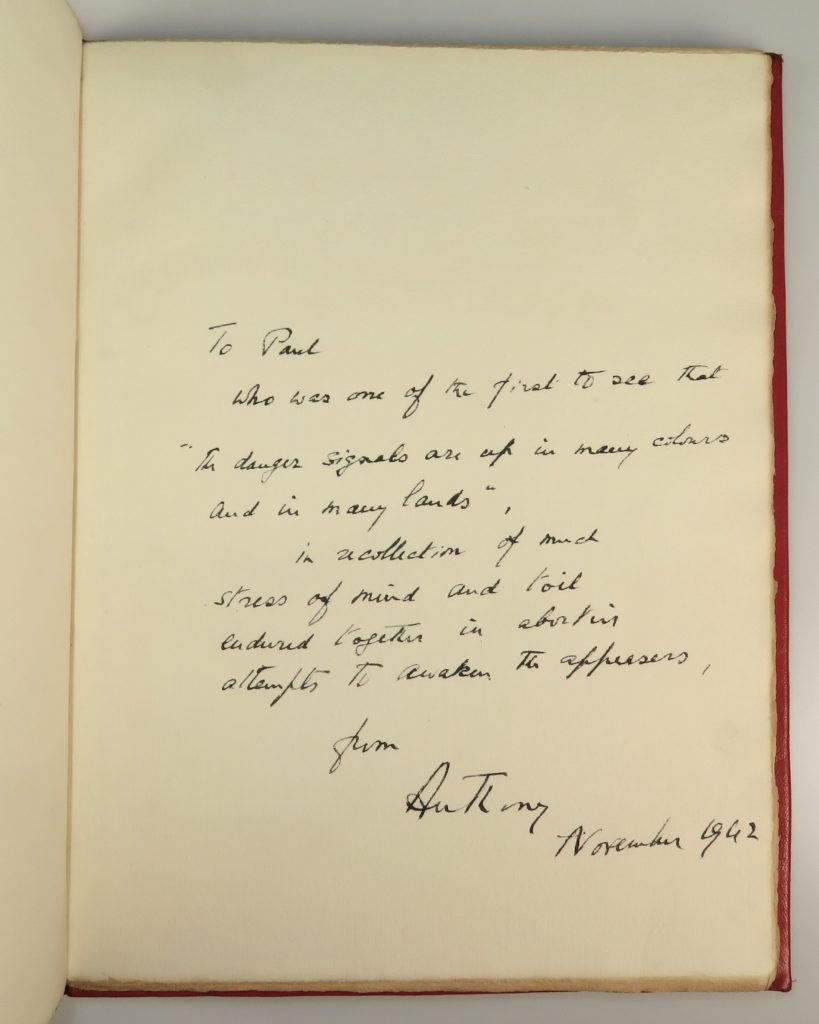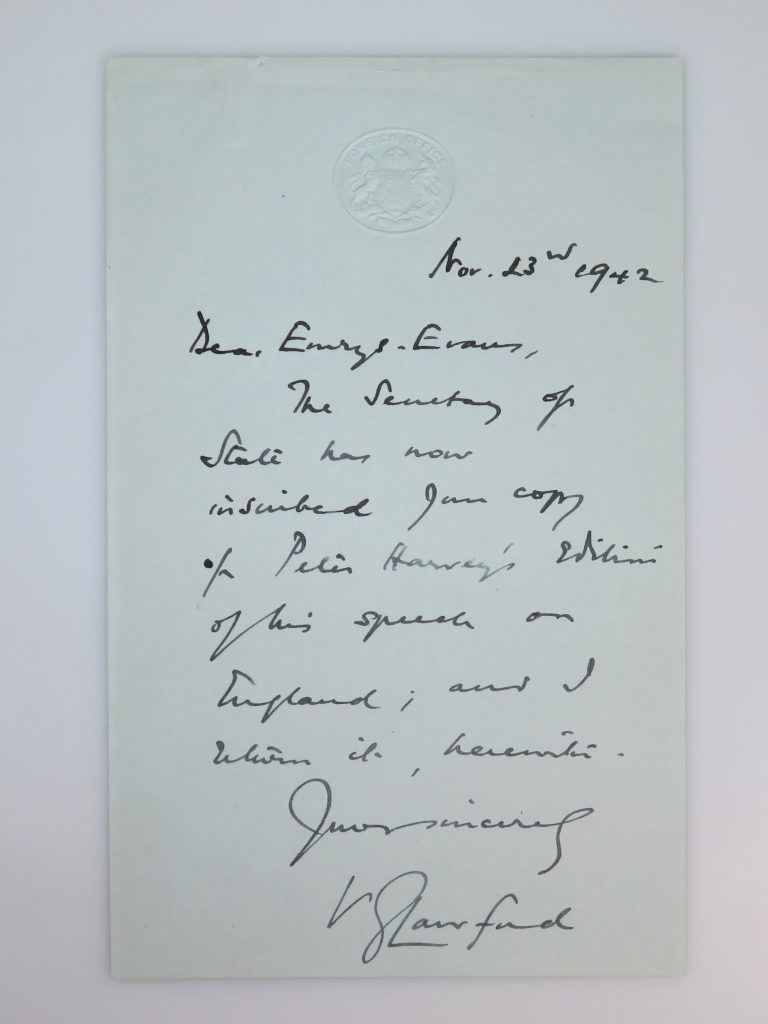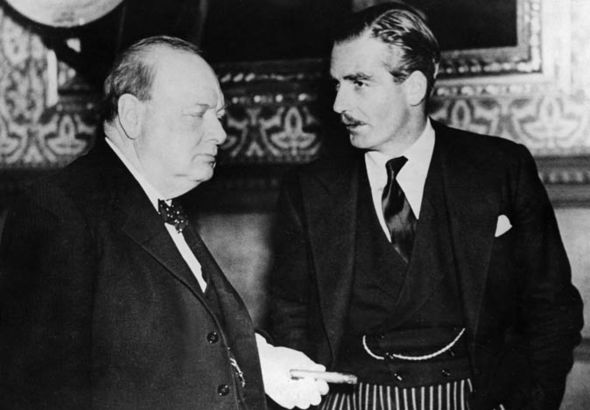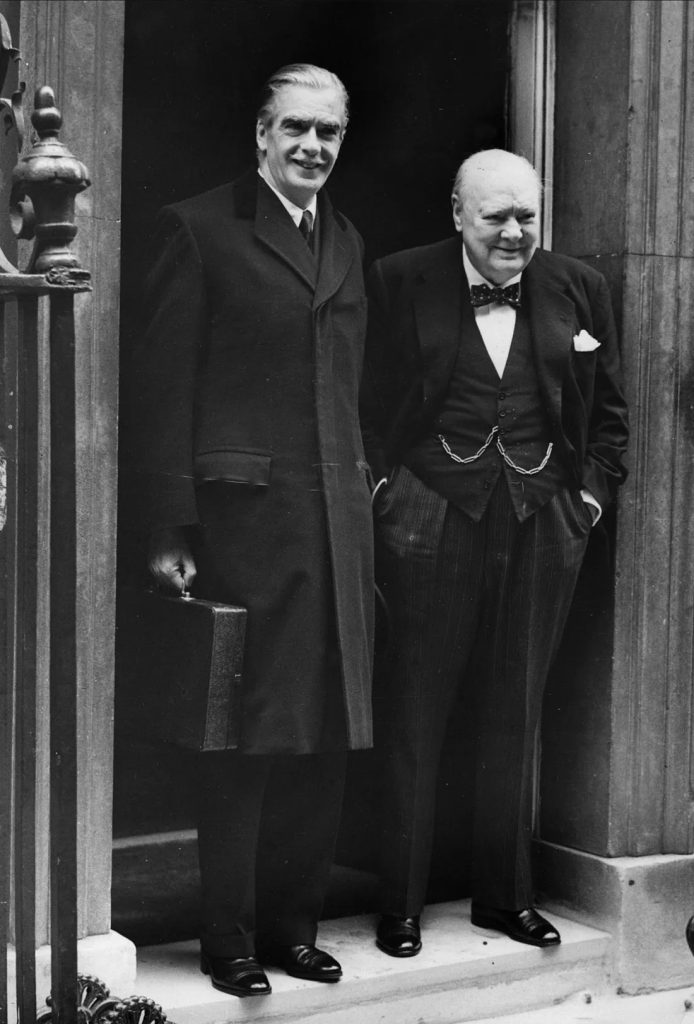Robert Anthony Eden, First Earl of Avon (1897-1977) famously resigned his Foreign Secretary post in the British Cabinet on 20 February 1938 in protest of the Government’s appeasement policies. “Although Eden had resigned over the appeasement of Italy rather than Germany, there was no doubt that he was also frustrated and irritated by the pro-Germans in Chamberlain’s Cabinet…” (Roberts, Walking with Destiny, p.423)
Like his fellow anti-appeaser, Winston Churchill, Eden was out of step with both his Party leadership and prevailing public sentiment in his assertion of the imperative to rearm and to resist the rise of European fascism. But unlike Churchill, Eden was not already in political exile, instead risking his career with his resignation. The following year, in a Strand Magazine profile of the once and future Foreign Minister, Churchill praised Eden for his “readiness to sacrifice unhesitatingly his great position for the sake of his convictions … even the most hostile critic must recognize the strong fibre of his nature, and the resolute purpose of his mind.”
A decade later, Churchill recalled receiving a phone call late in the night of February 20 “as I sat in my old room at Chartwell… that Eden had resigned. I must confess that my heart sank, and for a while the dark waters of despair overwhelmed me… During all the war soon to come and in its darkest times I never had any trouble in sleeping… But now, on this night of February 20, 1938, and on this occasion only, sleep deserted me. From midnight till dawn I lay in my bed consumed by emotions of sorrow and fear. There seemed one strong young figure standing up against long, dismal, drawling tides of drift and surrender, of wrong measurements and feeble impulses. My conduct of affairs would have been different from his in various ways; but he seemed to me at this moment to embody the life-hope of the British nation… Now he was gone. I watched the daylight slowly creep in through the windows and saw before me in mental gaze the vision of Death.” (The Gathering Storm, pp. 257-8)
A Marvelous Artifact
We were recently reminded of this pivotal pre-Second World War moment by a marvelous artifact of the moment. This exceptionally rare volume from the first month of the Second World War is the privately printed, finely bound, limited, and hand-numbered edition of future British Prime Minister Anthony Eden’s 26 April 1938 “England” address. This anti-appeasement speech was given at the Festival Banquet of the Royal Society of St. George just two months after Eden’s resignation. Not only is it one of just twelve copies, but it is also compellingly inscribed by Eden during the Second World War and further accompanied by a wartime autograph presentation letter signed by Eden’s foreign office secretary.
Edition and Condition
The edition is hand-numbered “5” of only twelve copies. Per the Colophon: “This speech was printed privately, in hand-set Centaur type on hand-made paper, by Peter Harvey, at Coed y Maen in the County of Montgomery. It was completed in September 1939, and bound by Nesta Williams Wynn. This edition is limited to twelve copies, of which this is number 5.” The limitation number is hand-written in black.
The binding is full orange Morocco goatskin with raised, blind-rule framed spine bands. The sumptuous paper on which the contents are printed is water-marked and bound with untrimmed edges and decorative endpapers.
As lovely and rare as it is, what renders this item most compelling – not to mention truly unique – is the inscription and presentation letter.
Inscription and Presentation
Eden’s inscription is inked on the recto of a preliminary blank in 11 lines:
“To Paul | who was one of the first to see that | “The danger signals are up in many colours | and in many lands”, | in recollection of much | stress of mind and toil | endured together in abortive | attempts to awaken the appeasers, | from | Anthony | November 1942”.
The recipient, Paul Vychan Emrys-Evans (1894-1964), was “Educated at Harrow and King’s College, Cambridge. During the First World War, he served as a lieutenant in the Suffolk Regiment (1914-17) and was wounded in France in 1916. He worked for the Foreign Office from 1917-23 and was later a Conservative MP for South Derbyshire from 1931-45. He was Parliamentary Private Secretary successively at the War Office and Dominion Affairs in 1940-41 and thereafter, from 1941-45, Parliamentary Under-Secretary of State for Dominion Affairs. (Gilbert, V, p.903)
Laid in is an autograph note signed on Foreign Office stationery from Foreign Office secretary Valentine Lawford dated “Nov 23rd 1942”. The note reads “Dear Emrys-Evans, The Secretary of State has now inscribed your copy of Peter Harvey’s Edition of his speech on England; and I return it, herewith. Yours sincerely, V. Lawford”
The secretarial letter is written and signed by Valentine Lawford (1911-1991), who entered the diplomatic service in 1934 and was assistant private secretary successively to Lord Halifax, Anthony Eden, and Ernest Bevin. He attended the Moscow, Quebec, and Yalta conferences and was appointed to the United Kingdom delegation to the United Nations in 1946, leaving service in 1950.
The Speech
It is difficult to imagine a more quintessentially English venue for Eden’s speech. “The Royal Society of St. George was founded in 1894 with the noble object of promoting ‘Englishness’ and the English way of life.” Eden’s speech was an eloquent effort to connect Englishness to the imperative of resisting fascism at a time when both his government and prevailing public sentiment were still substantially pro-appeasement.
In his speech, Eden praises England’s greatest bequeathal as “the art of self-government by a free people.” Eden’s speech is relatively short, but almost Churchillian in its invocation of social, political, and historical perspective in order to provide validating contextualization for a resolute course of action. In Eden’s case, the cause is preservation of constructive democracy and the need to arm and, if necessary, be prepared to resist, the belligerent aggressiveness of rising European autocracies – namely Mussolini’s Italy and Hitler’s Germany.
“For us” Eden asserts “freedom is a condition of true international understanding. There can be no lasting peace without freedom.” This Eden asserts as the foundation of an anti-appeasement argument. After touching upon the horrors of the First World War – in which he notes he was a combatant – Eden sets the desire and expectation of “old ways of life with the old security” against the fact of living in a period when society “has rushed forward at a pace which could not be checked or controlled.” Eden speaks of the difficulties of democracy, which can degenerate “rapidly into licence… or repressive restrictions upon liberty” as soon it is deviates “from the narrow path too far either to the left or to the right… either of which inevitably leads to tyranny.”
Echoing an anti-appeasement clarion, Eden quotes Jan Smuts, former Prime Minister of South Africa (who would return to lead his country during the Second World War in September 1939, the very month this volume was published): “’The issue of freedom, the most fundamental issue of all our civilization, is once more squarely raised by what is happening in the world, and cannot be evaded. The danger signals are up in many colours and in many lands.’” It is this line which Eden quotes in his inscription to Emrys-Evans in this volume. Pointing out the rise, accomplishments, and appeal of autocracies, Eden asserts that “A united effort for the spiritual and material rearmament of the nation is the need of the hour.”
The Man
The rest of Eden’s career would be spent serving and succeeding Churchill. Eden would not remain long in the anti-appeasement wilderness, but would nonetheless endure a very long wait for his own opportunity to lead, which would prove both bitter and short when it came. Eden was destined to become one of the most eminent, qualified, and frustrated political lieutenants in British history before he finally became Prime Minister.
Educated at Eton and Christ Church Oxford, among his panoply of accomplishments, Eden served on the western front from 1915-1918 and was awarded the Military Cross. He served as a Conservative Member of Parliament from 1923-1957. His posts included Parliamentary Under-Secretary, Foreign Office (1931-1933), Lord Privy Seal (1934-35), Minister for League of Nations Affairs (1935), and Foreign Secretary (1935-38, 1940-1945, and 1951-1955).
With Nazi Germany’s invasion of Poland on 1 September 1939, war came to Britain. “On 3 September, when war was declared, Eden accepted office in the National Government as dominions secretary. Churchill returned to the Admiralty, but unlike Eden as a member of the war cabinet. Although Eden was disappointed with the division of the spoils, he regarded it as his patriotic duty to serve.”
When Churchill became wartime Prime Minister in May 1940, Eden returned to power and, in December, to the Foreign Office, where he remained until July 1945. In November 1942 – the same month Eden inscribed this book – Churchill also made Eden Leader of the House of Commons, “an almost insupportable burden in addition to his duties in the war cabinet, on the defence committee, and in running the Foreign Office.” (ODNB)
A reasonable expectation might have been that, when Churchill’s wartime coalition government fell in July 1945, Eden would succeed Churchill as Leader of the Opposition and eventually become the next Prime Minister when the Conservatives returned to majority. But such were Churchill’s stature and inclinations that Eden was not given the reins until Churchill resigned his second and final premiership in April 1955.
Eden’s long-delayed premiership proved both brief and fraught with challenge, including the Suez Crisis, and showed Eden prone to reveal “irascibility, his inability at times to delegate, and his touchiness in the face of criticism.” Nonetheless, the passage of time sees Eden “increasingly recognized as a serious and patriotic figure who worked under the most appalling pressure for nearly three decades at the front line of British and world politics.” (ODNB) Eden was appointed a Knight of the Garter in 1954 and created 1st Earl of Avon in 1961. Many honors accrued to Eden, and he was an active chancellor of Birmingham University for nearly three decades.
Cheers!

